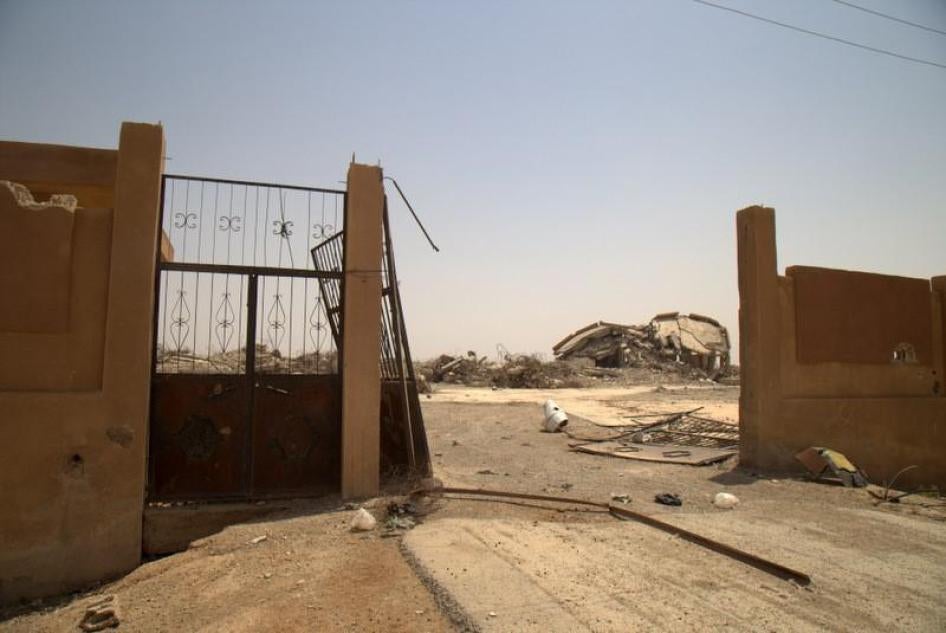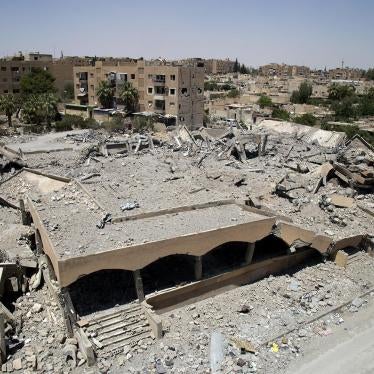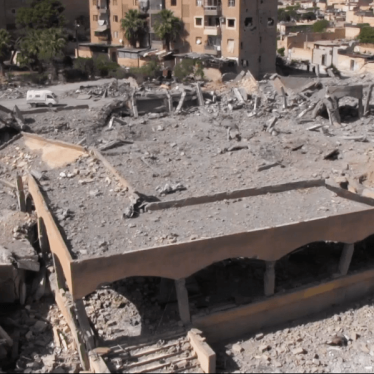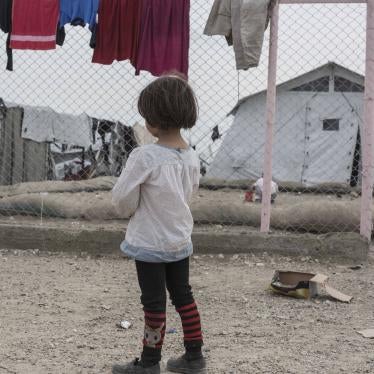On March 20 of last year, an aircraft of the US-led coalition struck a boarding school in Mansourah, near Raqqa, Syria. The building was completely destroyed. What was hit and who died in this strike has been a subject of contention ever since. The coalition has maintained that the building was an Islamic State (also known as ISIS) intelligence headquarters and weapons storage facility where more than 30 ISIS militants typically stayed and that no civilians were harmed.
Last July, I visited the school as part of a Human Rights Watch investigation and we came to a very different conclusion. After interviewing a dozen witnesses, including two survivors, we found that far from being a military base, the school had been housing large numbers of displaced civilians. While witnesses said that some of the civilians were relatives of ISIS fighters who had fled Iraq, they said that the school was also used by many other civilians who had no ties to ISIS members. We collected the names of 40 people, including 15 women and 16 children, who died in the strike. The total number of civilian casualties, people who buried the dead told us, was much higher.
We shared our findings with the coalition, including the names of many of the victims, but the coalition has not investigated further or changed its assessment of the strike. It has maintained the position that it articulated last July, when it said that “after review of available information and strike video it was assessed that there is insufficient evidence to find that civilians were harmed in this strike.” We never found out how the coalition collected its information or why it decided there is insufficient evidence.
The UN Commission of Inquiry for Syria, set up to investigate violations of international law in Syria since 2011, issued its latest periodic report on March 6 and came to a conclusion similar to ours about civilians being harmed in the Mansourah strike. After interviewing 20 witnesses, they found that the information they collected “does not support the claim that 30 ISIL [Islamic State] fighters were in the school at the time of the strike, nor that the school was otherwise being used by ISIL.” The commission found that out of 200 residents in the school, 150 were killed and identified 12 survivors, including 4 women and 6 children.
In light of these additional findings, the US-led coalition should revisit its assessment and agree to conduct a full and transparent investigation of its Mansourah strike. The coalition should use the full range of investigative tools, including interviews with victims and their families, as well as local residents. Such an investigation is not only important for the victims but is also essential to better understand what precautions the coalition took to protect civilians in its anti-ISIS campaign in Syria and Iraq.
We still do not know the civilian death toll of the anti-ISIS campaign, but the information gathered by independent on-the-ground investigations, including the New York Times report “The Uncounted,” suggest that the numbers of victims in Iraq are far higher than the Pentagon has estimated or reported. On a recent visit to the city of Raqqa, local residents told me that hundreds of bodies of civilians killed by coalition airstrikes still lay under the city’s rubble.
The fact that the fate of civilians in the Mansourah strike – and in many other strikes – continues to be shrouded in a “fog of war” and bureaucratic denials almost a year after the attack is striking given that the coalition’s partner forces have been in control of these areas for months. Witnesses are available for interviews, bodies are accessible to be counted. The ongoing denials show, at best, an indifference to the plight of the civilian population.
This attitude by the coalition is shortsighted. The fact that the coalition is more transparent than the Syrian or Russian air force should not be a source of comfort. The Pentagon does have procedures in place that it could activate to look more closely at what happened in Mansourah. The question is whether US officials are willing to revisit the case to take into account the new available information.
I heard US officials repeatedly mention the importance of winning hearts and minds in the battle against ISIS. Opening a full investigation into the Mansourah strike before the anniversary of the attack would be a step in the right direction.








